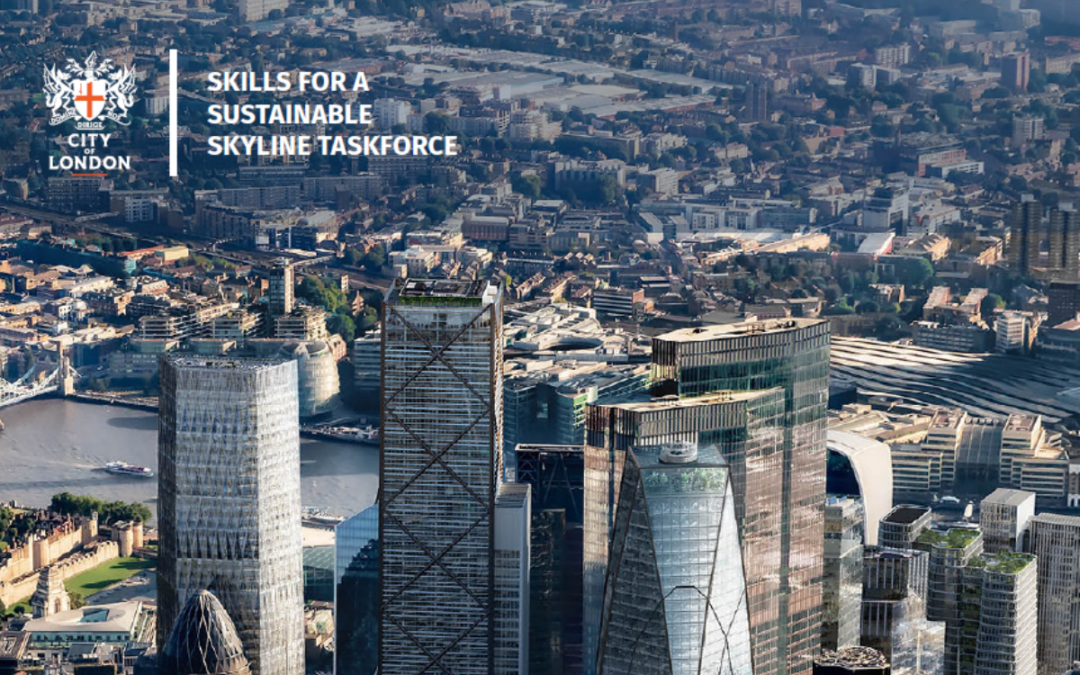The City of London Corporation has released a new report urging investment in workers to meet the growing demand for green jobs and skills in decarbonising the city’s commercial buildings.
The report highlights a need for a skilled and diverse workforce capable of constructing, retrofitting, and managing sustainable buildings. The Construction Industry Training Board (CITB) predicts a surge in construction labor demand in Central London, reaching over a quarter of a million by 2027. Additionally, there’s an annual demand for around 35,000 non-construction professionals in the built environment sector.
Over 300 organisations have joined the ‘Skills for a Sustainable Skyline Taskforce,’ including designers, construction firms, and education providers. The taskforce emphasises the urgency of addressing the growing demand for sustainable commercial buildings.
The report recommends reforming the Apprenticeship Levy and s106 policies to match the demand for skilled workers. The current inflexibility of the Apprenticeship Levy and inconsistencies in s106 policies have raised concerns within the sector.
There are six main recommendations for government, training providers and the wider industry to address collectively. These include:
- Developing new entry-level sustainability training, apprenticeships and upskilling courses for emerging job roles;
- Working with government to set more ambitious green skills strategies for the built environment;
- Invest in attracting diverse candidates to a wider spectrum of sustainable roles across the built environment;
- Creating an easily accessible way to collect and share data on the pipeline of projects and workforce skills shortages, so that the industry can prepare for the emerging skills needs;
- Built environment organisations should develop an Environmental Social Governance (ESG) strategy to support sustainability operations, retrofit, and skills training;
- Promote the sector’s role in addressing climate change, with wide-ranging career pathways and diverse role models through positive PR and engagement with schools.
Chairman of the City of London Corporation Planning and Transport Committee, Shravan Joshi, said:
“The built environment is critical in supporting central London’s transition to a more sustainable economy. Buildings have substantial carbon footprints, so reducing emissions in the sector will be pivotal for addressing climate change. Ensuring technical education, such as through apprenticeships, offers a range of flexible training routes towards new jobs, which will be essential to delivering on sustainability ambitions.
“I would like to personally invite industry representatives to join the Skills for a Sustainable Skyline Taskforce, read the new report and to follow the six recommendations to help us build a more sustainable built environment workforce and reshape the sector.”
The Skills for a Sustainable Skyline taskforce has committed to sustained engagement with the government to promote a reformed Apprenticeship Levy and s106 policy, that is more flexible and meets the needs of employers. It will also promote the delivery of a new National Retrofit and Green Skills Strategy for commercial developments. It will also convene with employers, owners, leaseholders, local government and training providers to explore how they can work collaboratively to promote workforce upskilling, expansion and diversification.

